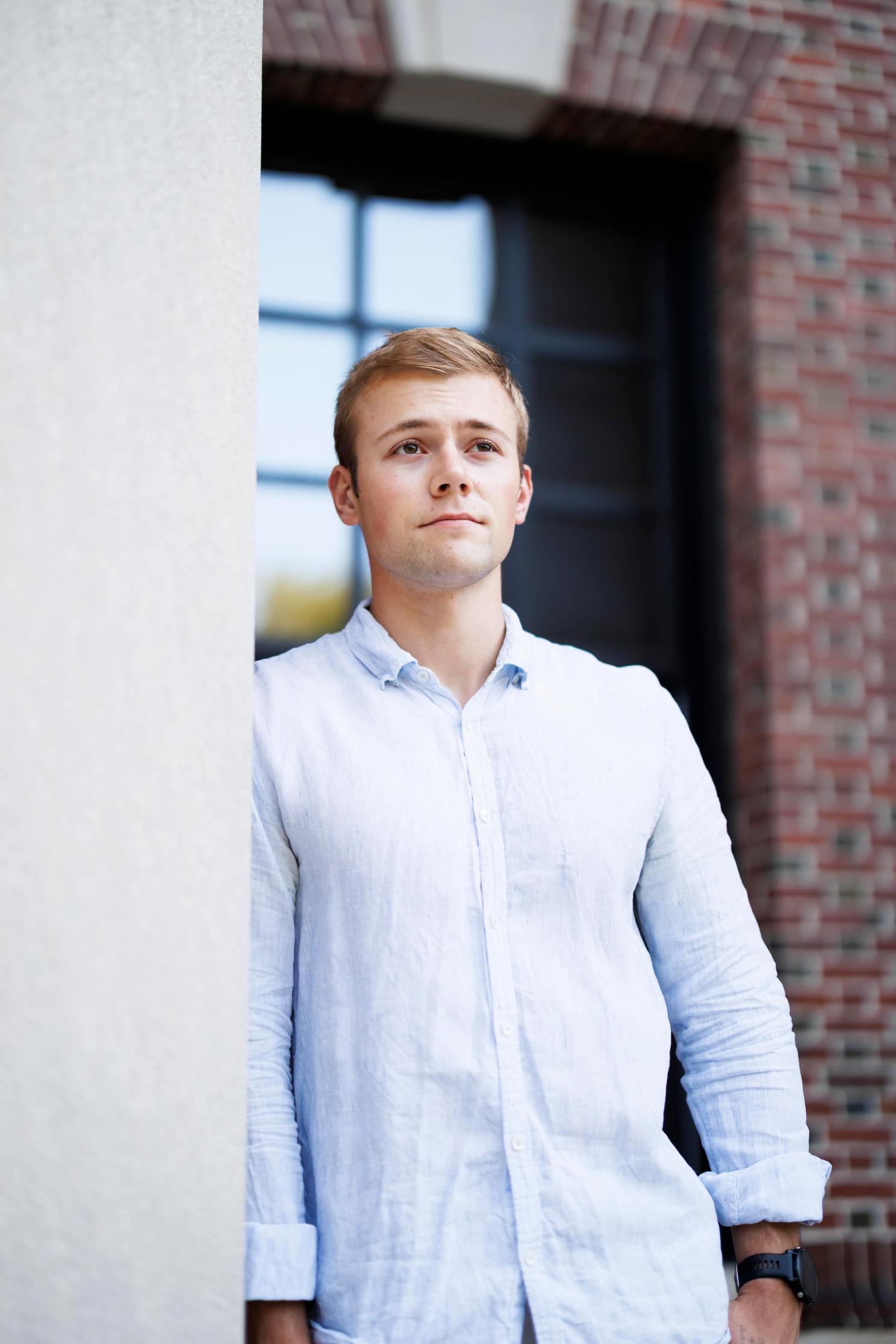Flew home as Will Flintoft, returned as Rhodes Scholar

Flew home as Will Flintoft, returned as Rhodes Scholar
Applied math concentrator to study computer science, theology with eye toward AI
Will Flintoft flew home to Australia for a few days last month and returned to campus as a Rhodes Scholar.
The senior mathematics and philosophy double-concentrator will spend the next two years at the University of Oxford, where he plans to pursue advanced degrees in two fields: mathematics and foundations of computer science, and philosophical theology.
“Part of the trajectory I see for myself is lending a perspective which is both technically informed, but also deeply plugged into ethics,” said Flintoft, who is also pursuing a concurrent master’s degree in applied math at the Harvard John A. Paulson School of Engineering and Applied Sciences (SEAS). “We seem to be at this really catalytic moment in the world with regards to large language models and machine learning more generally. There’s a lot of work to be done making sure that this kind of technology is being developed in a way that’s smart and also sensitive to the ways in which it can go wrong and where there can be pitfalls.”
Flintoft applied to the Rhodes Scholarship last August and was named a finalist for the one scholarship allocated to the Australian state of Victoria. He needed to complete two panel interviews — the first was virtual, but the second required a flight home.
“Both rounds of interviews were with the full selection panel, which is composed of former Rhodes scholars who have gone on to do really fascinating, cool things, as well as really important figures in the Australian community,” he said.
Flintoft found out that night that he’d been selected. That meant he got to celebrate with his family.
“It was a really special experience, but very brief, because I had to hop back on a plane to get back to Boston literally a couple of hours later,” he said. “It was a very rushed experience amid the delirium of jet lag. A lot of time zone changes, but it was a really wonderful experience.”
While most Rhodes Scholars receive their first graduate degrees at Oxford, Flintoft will arrive with one already completed. Applied math has provided him with tools to both deepen and better deploy his undergraduate education into the intersection of philosophy and technology.
“For those that want to push that little extra mile and really sink our teeth into truly difficult grad classes, which are often literally at the forefront of research, that kind of experience is very special,” he said. “Applied math specifically is a wonderfully versatile degree. It has intersections in biology, economics, physics, computer science, a whole host of different disciplines.”
At Oxford, Flintoft is especially interested in the philosophical and societal implications of artificial intelligence and fundamental questions such as what it means to be human when AI can improve on or replace so much of human behavior.
“There are going to be a whole host of really good benefits as a result of AI being deployed en masse in a society,” Flintoft said. “Productivity increases, and there’ll be benefits to people’s lives and livelihoods because there’ll be a whole bunch of quite complex services that will be a lot cheaper. But the important thing is that the transformation is done right, because AI will catalyze and accelerate. It’s important that that acceleration happens in the right direction.”
Flintoft’s time at Harvard reflects broad interdisciplinary interests. His extracurricular activities include being managing editor of the Harvard Review of Philosophy and editorial chair of the Harvard Undergraduate Law Review.
He is also a researcher in the Soft Math Lab of L. Mahadevan, Lola England de Valpine Professor of Applied Mathematics, of Organismic and Evolutionary Biology, and of Physics at SEAS, where he studies complex behaviors in biology, such as the mathematics behind control of muscular hydrostats such as octopus arms.
Flintoft’s research raises philosophical questions about consciousness and conscious decision-making — questions Flintoft might very well get to answer over the next two years.
“I’ll get the chance to hone my interests a little bit more in these two areas that are really important to me,” he said. “Additionally, the Rhodes Scholarship is designed to immerse scholars in a community of other scholars who are also all public service-oriented and really want to maximize the impact that their study can have on the world. I think that connection between what we learn in the classroom and the way that we then go on to bring good into the world is really important.”
Latest Harvard
- Time for mandatory retirement ages for lawmakers, judges, presidents?Americans seem to mostly say yes; legal, medical scholars point to complexities of setting limits
- In dogs, as in humans, a harsh past might bare its teethEarly adversity leads to higher aggression and fearfulness in adult canines, study says
- Brief bursts of wisdomAphorism lover and historian James Geary reflects on how ancient literary art form fits into age of social media
- What will AI mean for humanity?Scholars from range of disciplines see red flags, possibilities ahead
- Tai Tsun Wu, 90Memorial Minute — Faculty of Arts and Sciences
- Richard Goody, 102Memorial Minute — Faculty of Arts and Sciences






